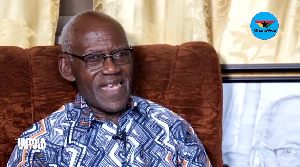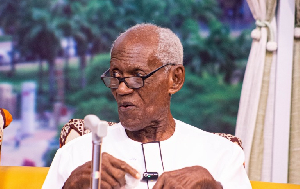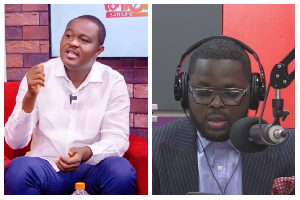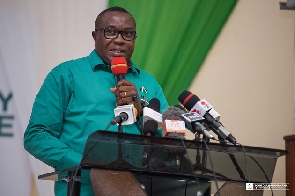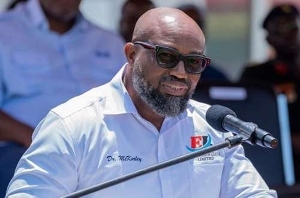 Ghana over the years has experienced steady growth with an average of 7% per year since 2005
Ghana over the years has experienced steady growth with an average of 7% per year since 2005
Programme Officer for SEND GHANA, Harriet Nuamah-Agyemang, has advised government to apportion adequate resources towards the development of basic education especially in terms of capital expenditure.
During a roundtable discussion on the state of inequality in West Africa at the Institute for Democratic Governance (IDEG), Madam Nuamah-Agyemang presented an analysis of the 2018 budget and identified how inadequate funds were allocated to capital expenditure adding that, “question of prioritization and equity in the education system” needed to be answered.
According to the SEND GHANA’s 2018 Budget analysis, 79% of funds were allocated to Compensation (salary payment and staff benefits), 15% allotted to Good and services and 6% allocated to Capital expenditure.
“The current quality of learning at the basic level is relatively very low. The pre-school and primary education requires critical financial attention for the training of teachers and provision of teaching and learning materials among other things to enable proper development of the cognitive foundation of pupils in preparation for secondary level education,’ the report stated.
Madam Harriet expressed worry at the development and said the percentage for capital expenditure which mostly relies on loans and grants was very inadequate considering the number of children of school going age in the country.
Even though her plea was centered on basic schools, she mentioned that the implementation of the Free SHS policy which has led to a rise in SHS enrollment, has not only put a strain on infrastructure and logistics but has also greatly affected the “smooth implementation of the policy” and recommend to government that funds allocated should be timely distributed in their totality to assist stakeholders in executing their duties.
She further advised government to regularly audit the Ghana Education Service payroll to clean out possible ghost names and suggested the need for the educational sector to embark on intensive drives for children above the age 4.
Closing the inequality gap: Growth is not equal to wealth distribution
The roundtable discussion which was under the theme, “Exploring the Nexus between Budget Allocation and Inequality” was a follow-up to a previous discussion held by the IDEG in partnership with the West African Civil Society Forum (WACSOF) and IBIS on the topic Inequality in Ghana.
Ghana over the years has experienced steady growth with an average of 7% per year since 2005, according to IDEG. In a statement, IDEG identified that Ghana has, however, become an unequal country where benefits of economic development are not evenly distributed across board.
Dr. Emmanuel Akwetey, Executive Director for the IDEG acknowledged that even though past and present governments have made efforts in bridging the gap by instituting policies like the National Health Insurance Scheme (NHIS) and the Livelihood Empowerment Program (LEAP), there was still room for improvement.
“We are looking at inequality because of the values we hold. If we are reducing poverty in our country then we should measure the reduction of inequality. So poverty reduction should decrease the inequality gap, “he said.
“The president says that he wants to allocate more resources and power to local structures and to communities so that they will be able to tackle poverty.
He wants poverty reduction to go faster so you can see that there are a lot of programs focused on the districts. But growth does not equal distribution so we have to look at ways which we can redistribute wealth to tackle inequality,’ he noted.




